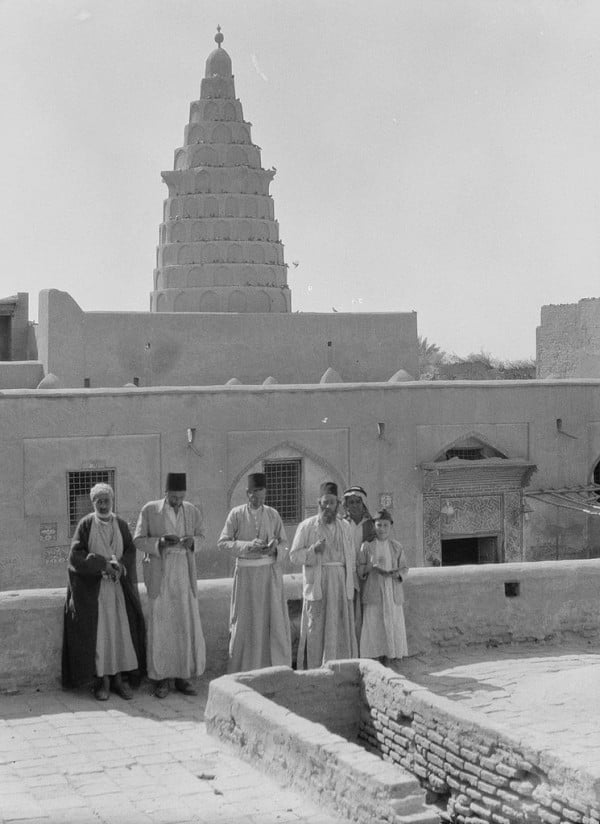
I was recently reading on the history of the Persian Empire and was drawn to the history before Alexander the Great, where the Persian Empire conquered ancient Babylon. The Persian Empire was likely the first multicultural empire that allowed different groups to preserve many of the cultures within its dominion. Part of the history discussed the Jewish community in Babylon that were taken from the region where Israel is today after a war with the Babylonians. After being defeated, the Babylonians used to take those of value to their local societies and use them to build the Babylonian empire. This kept much of Eastern Jewish culture away from Jerusalem until they were allowed to return to the ancient lands in Israel by the Persian king at the time. While many did go west to Jerusalem, many stayed in Babylon and that part of the Persian Empire flourished until its eventual downfall after Alexander.
While many empires and nation states have disappeared since the times of the Babylonian Empire, the Jewish community in what is now called Iraq had existed the entire time. Their culture and history is one of the oldest and well-documented nations to currently exist, not only in the Middle East, but worldwide. They still survive because they were an integral part of the societies that existed since they were taken to Babylon nearly 2,500 years ago. While few Jewish communities were allowed to grow peacefully without a major purge in most parts of the world, the documents created by the Jews of Babylon were built upon and traced Jewish culture from the time of the Bible to the present century. While the Jews of Al-Andalus were violently ripped from their heritage, the Jews of Iraq were able to keep Jewish culture alive and secure in their part of the world. While not exempt from violence, the Iraqi Jewish community held on until the 20th century where the last few people left Baghdad and Basra in the 1970s.
Recently, there was an article published about the treasures of the Jewish community in Iraq being found underwater in one of Saddam compounds after the U.S.-Iraq War began in 2003. The Iraqi government tasked the U.S. government to restore the treasure — most if not all of it documentation from the Jewish community in Iraq from the 1500s to the 1970s. After the restoration, the documentation will be returned to Iraq to be preserved in a museum. Iraqi Jews are demanding that their documents be returned to the families, as they have no access to the artifacts in Iraq, and there is a risk that the items might be destroyed due to the heated conflict in the region. While the documentation hardly has a high monetary value, for Iraqi Jews it is a reflection of their heritage, one that may not be remembered for much longer outside of Iraq without its history being preserved.
Do existing ancient cultures have a right to their artifacts? In the Middle East, cultures that are nations without a home state should still earn their credence to nationhood, and saving the face of Iraq’s historical society or American diplomacy can still occur while showing compassion to a culture that may not exist in a generation. Whether or not the Iraqi government will take care to preserve it or be able to accomplish that task is an issue that directly affects a community that may not exist in the future. It is up to that community to decide how they wish to preserve their legacy and culture; after living through so many empires and nation states that community is the only constant and rightful claimants to their own history.
There seems to be an allergic response by the U.S. and Iraqi governments to the legitimate rights of the Iraqi Jewish community to have their treasures returned to them. While these documents are from an ancient culture and steps should be taken to preserve them, the reality is that there are Iraqi Jews still living today, and they should first and foremost have a right to have access to their own history. The question of who owns it would be easily resolved if an Babylonian Jewish state laid claim to the artifacts. If a nation does not have its own borders, who owns it should simply be the culture that created it. Iraqi Jews keeping their own history isn’t anti-Iraqi, nor does the Jewish community from Iraq see their time in that part of the world as something that was wholly negative. Despite the modern conflict between Israel and the Arabs, Iraqi Jews are from Baghdad and Basra and are proud of where they come from. While not common knowledge, there were many Jewish communities from Arab, Turkish and Persian lands that love their culture as much as any other faith does.
A real memorial to Iraq’s Jewish heritage would be to preserve their gravesites and old synagogues and other structures to solidify the existence of their community. This seems to be a more accommodating option than to deny the last of them who lived in Iraq from their personal documents and religious treasures that only have use and value to living, breathing people. Due to the current political climate, it would be reasonable to think that the last Iraqi Jews would not be able to go back to Iraq to visit or live without some danger to themselves being a reality, even with the new current government. They are only treasures for those who come from that culture — they should be given their culture back.